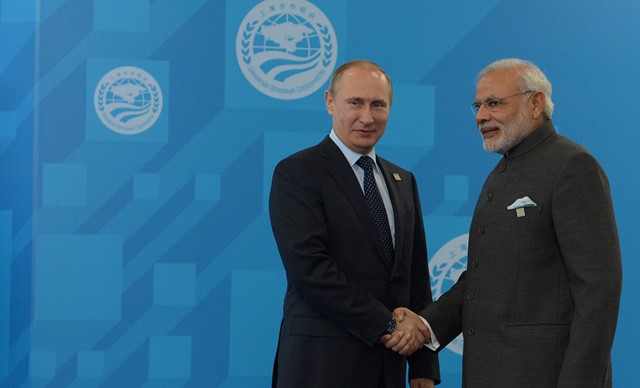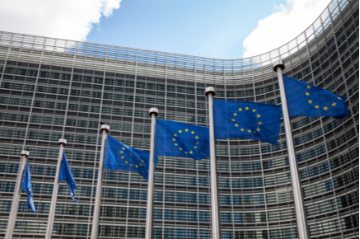 This article is part of an online collaboration between the Valdai Club’s Think Tank Project and Observer Research Foundation.
This article is part of an online collaboration between the Valdai Club’s Think Tank Project and Observer Research Foundation.
The 2020 US elections are being followed keenly in India, as they are in many other parts of the world. India’s direct stakes in the outcome are relatively minor. Both major party candidates — Republican Donald Trump and Democrat Joe Biden — have indicated a willingness to improve relations with New Delhi, although with different areas of emphasis. Trump’s visit to India in February of this year left a positive impression. Biden himself described the US-India relationship as a “special bond” and committed to continue “standing with India in confronting the threats it faces in its own region and along its border.” He has also committed to working with India to expand trade, tackle global challenges such as the climate crisis, and strengthen democracy.
The indirect implications of the election for India, however, might be more significant. After all, the election outcome will affect US foreign policy, such as relations with China, Pakistan, Afghanistan, and Iran. India would like to see the US take a tougher position against its regional adversaries, China and Pakistan. It would also ideally seek a more favourable outcome in negotiations with the Taliban in Afghanistan, as well as exemptions from Iran-related sanctions. Beyond strategic affairs, the US election could also influence its economic and social policies, including trade, immigration, climate change, and democratic cooperation. India would naturally prefer more favourable terms of engagement on these issues.
For India, the indirect implications of the election might be more significant. After all, the election outcome will affect US foreign policy, such as relations with China, Pakistan, Afghanistan, and Iran.
However, one area of particular concern to India relates to future US policy to Russia. New Delhi continues to have a strong relationship with Moscow. The centrepiece is the defence relationship, with Russia remaining the largest provider of arms to India and a critical partner in a number of license-produced and jointly-developed weapons systems. Additional cooperation extends to the civilian nuclear sector and space, including India’s fledgling manned spaceflight programme. Trade had increased somewhat prior to the coronavirus pandemic (although from a modest base), while India had committed to increase investment in the Russian Far East. Finally, India-Russia relations have extended to multilateral affairs and global governance, including such forums as BRICS and the Shanghai Cooperation Organisation.
Meanwhile, US relations with Russia remain strained. Although only 18% of Americans have a favourable impression of Russia, there are partisan divergences: only 35% of Republicans view Russia as a threat, as opposed to 65% of Democrats. Despite Trump’s apparent willingness to engage with Moscow, a combination of such political factors, the proceedings of Trump’s impeachment, assorted Russian actions, and the predispositions of national security policymakers in Washington have ensured that relations remain fraught. Other developments have contributed further to tensions. The US and Russia support rival factions in Syria. The United States’ abrogation of the INF Treaty has further set back cooperation on arms control. And the United States has criticised Germany’s continued commitment to the Nord Stream 2 pipeline. These contrasting attitudes to Moscow between New Delhi and Washington — coming at a time of greater India-US bonhomie — remains a source of some friction, although the extent and significance might sometimes be exaggerated.
One area of particular concern to India relates to future US policy to Russia. New Delhi continues to have a strong relationship with Moscow.
In part, these differences are a natural consequence of the relationship between India and the United States becoming closer. Today, the United States is India’s most important economic partner, if trade in services and goods, investment, research and development, education, people-to-people links, and corporate relations are taken into consideration. India also sees in the United States an important strategic partnership, whether in terms of regional coordination, military operations in the maritime sphere, or defence technology. For its part, Washington sees in India a growing economy with largely congruent interests in Asia. These realities imply some contradictions in the US-India-Russia triangle, further complicated by the three parties’ relations with other actors, such as China, Pakistan, Europe, and Japan.
 Russia remains the largest provider of arms to India and a critical partner in a number of license-produced and jointly-developed weapons systems. Image © Ria Novosti/Getty
Russia remains the largest provider of arms to India and a critical partner in a number of license-produced and jointly-developed weapons systems. Image © Ria Novosti/Getty
India has made it clear that its relationship with Russia will remain independent of US policy, encapsulated in the agreement to procure the S-400 air defence system. In the face of India’s insistence, the US Congress has created some legislative wiggle room to exempt India (and other partners) from resulting sanctions, conscious that the implications of sanctioning India for its relationship with Russia would be to the long-term detriment of US strategic interests. However, the legislation does not allow for an open-ended waiver, and must be approved on a case-by-case basis. US policymakers have drawn a distinction between India and Turkey (which is also acquiring the S-400) by highlighting India’s past relationship with Russia and current defence acquisition trends. While the situation at present could be seen as part of a successful Indian attempt at balancing its relationship with both countries, it has also injected a degree of uncertainty in ties with Washington.
Public sentiment and other points of difference between Washington and Moscow are likely to remain, and there is little political appetite for a “reset,” a term associated today with the failure of post-2009 engagement.
Overall, from New Delhi’s vantage point, a more accommodating approach by the United States towards other countries’ engagement with Russia would be ideal. However, should he win this November’s election, the administration of Democrat Joe Biden will be wary, at least initially. Public sentiment and other points of difference between Washington and Moscow are likely to remain, and there is little political appetite for a “reset,” a term associated today with the failure of post-2009 engagement. But, equally, it is unclear whether a second Trump administration will have much more latitude, particularly if the Democrats secure majorities in both houses of the US Congress. India may be left with little choice but to continue making the strategic case for its Russia relationship to Washington, trusting that it would result in more flexible outcomes. In this effort, it will not be alone, with other US partners in Asia (notably Vietnam and Indonesia) also seeking to preserve defence relations with Moscow while improving their ties with Washington.
At the same time, India’s efforts to preserve the primacy of its partnership with Russia would be made much easier should Russia pay more heed to certain Indian concerns that are distinct from Washington’s. Such Indian concerns relate to Moscow’s more accommodating approach to the Taliban in Afghanistan, its resistance to the Indo-Pacific strategic concept (as articulated by foreign minister Sergey Lavrov at the Raisina Dialogue in New Delhi this year), its willingness to engage in high-technology military commerce (including ballistic missile defence) with China, and its nascent defence cooperation with Pakistan. Some notional commitments reportedly made during Defence Minister Rajnath Singh's recent visit to Moscow offer a promising signal. But, regardless of the US election outcome, greater Russian sensitivities to Indian concerns on these and similar issues will be vital to preserving a robust India-Russia partnership in a period of greater strategic flux.
The views expressed above belong to the author(s). ORF research and analyses now available on Telegram! Click here to access our curated content — blogs, longforms and interviews.



 This article is part of an online collaboration between the Valdai Club’s Think Tank Project and Observer Research Foundation.
This article is part of an online collaboration between the Valdai Club’s Think Tank Project and Observer Research Foundation.
 Russia remains the largest provider of arms to India and a critical partner in a number of license-produced and jointly-developed weapons systems. Image © Ria Novosti/Getty
Russia remains the largest provider of arms to India and a critical partner in a number of license-produced and jointly-developed weapons systems. Image © Ria Novosti/Getty PREV
PREV

